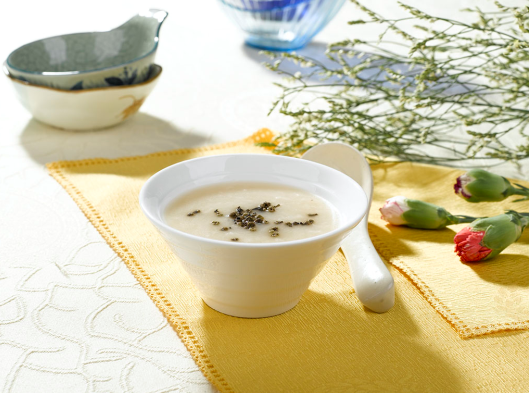Soy sauce originated in China some 3,000 years ago. To produce it in the traditional way by fermenting soybeans, grains, and mold cultures in small batches, requires six months of patience and culinary skill. But today these methods have largely been replaced by a three-day process of boiling soybeans in acid for 15 to 20 hours, then adding preservatives and additives like corn syrup, caramel coloring, and salt, resulting in a less-subtle flavor and less-healthy product.
Preserving Chinese traditional foods not only provides a link to China's past and culture, it can also improve China's food security and help protect Chinese people's health, raise farmers' and food producers' incomes, and make the country more resilient to climate change. Click here to learn Causes of Adenomyosis in TCM.
Following a traditional Chinese diet can decrease the incidence of chronic diseases such as obesity, heart disease, and some types of cancers. Traditional Chinese foods, including bok choy, Chinese broccoli, mung beans, and Chinese cabbage are high in antioxidants, fiber, and vitamins, and low in sodium and saturated fat. And indigenous Chinese foods like garlic, ginger, and mung bean have been used as medicines in China for centuries, and are increasingly adopted as herbal remedies around the world for conditions ranging from indigestion to heart disease.

Another important way that Chinese people have historically provided food security is by raising fish in rice paddies. This boosts both productivity and provides farmers with a critical source of protein. In Jiangsu province, along China's east coast, incorporating fish or shellfish into rice paddies raised rice yields by 10 to 15 percent, and produced 110 pounds of fish on less than one fifth of an acre. These and other traditional methods of food production ensure that even when global food prices skyrocket, rural and urban Chinese people can feed their families nutritious and diverse meals.
Preserving traditional Chinese foods can also serve as a reminder of China's rich food culture, particularly for young people who now know the dubious delights of foreign fast-food chains. Food is central to many Chinese festivals and holidays, from feeding sticky cake to the Kitchen God in preparation for Spring Festival, to making rice dumplings during the Lantern Festival to symbolize family unity, completeness and happiness.
And as the global demand for meat and animal products grows, Chinese food producers can increase their incomes by raising indigenous Chinese animals such the Jinhua pig. This breed of pig is known for its tender meat, rosy color, and great flavor. And because the Chinese government is actively trying to help farmers expand its domestic meat production, backyard or small-scale pig farming can provide a sustainable and profitable alternative to China's booming factory-farmed meat industry. Click here to learn Chinese medicine Treatment for Adenomyosis.
Small-scale meat and vegetable production will also make Chinese farmers, in both urban and rural areas, more resilient to climate change. More erratic weather events, changing rainfall patterns, and expanded disease and pest habitats will all likely disrupt traditional farming practices in China. But farmers can adjust to these changes by growing a variety of indigenous Chinese vegetables, such as cabbage, bok choy, and other vegetables; or by raising native animals like minzhu pigs, which have adapted to poor-quality forage and low temperatures to survive in the cold and dry Qinling Mountains in the north of China.
Although China is rapidly becoming more industrial and urban, it can still benefit by keeping some of its cultural traditions. Chinese consumers should eat like their grandparents did, for their own health and the health of the environment.
Danielle Nierenberg is project director of the Worldwatch Institute's Nourishing the Planet project. Laura Reynolds is a research intern with Nourishing the Planet.

![Diseases, Symptoms, tcm, [tcmwindow.com]](/uploadFile/adImg/2015/4/24/6de633b8-0a7a-4546-868a-02389edf5c65.png)





